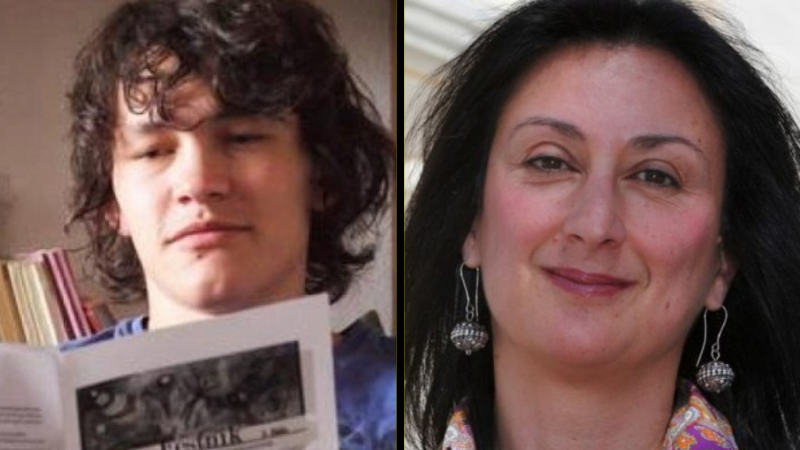Malta and Slovakia don’t have much in common. The two young ‘democracies’ recently came under international scrutiny following the murder of journalists Daphne Caruana Galizia and Jan Kuciak.
And the reaction of citizens and the authorities in the two EU countries cannot be more different.
In the seven months since the brutal assassination of Slovak investigative journalist Jan Kuciak and his fiancée Martina Kusnirova, the country’s government was toppled, the police chief resigned and four people were arrested in connection with the murder.
According to Slovak prosecutors, a female suspect, Alena Zs, allegedly paid €70,000 for the assassination of Kuciak. The job was carried out on 21 February by a former police officer, named as Tomas Sz. Slovak officials charged two more suspects, including a driver and an alleged intermediary. All four suspects have been detained and are awaiting trial in jail.
Unlike Malta, Prime Minister Robert Fico resigned in the wake of the murders amid mass protests against the handling of the murder and government corruption.
Unlike Malta, police chief Tibor Gašpar stepped down after thousands of citizens took to the streets to demand his resignation over his handling of Kuciak’s murder and the failure to curb the country’s rampant corruption problems.
Unlike Malta, Slovak President Andrej Kiska – who has a largely ceremonial role – supported calls for a change in government and publicly said that Gašpar’s departure was crucial to “rebuilding people’s trust in the police.”
Unlike Malta, the arrests were not announced by Fico’s successor Peter Pellegrini in a hastily arranged press conference while the arrests were being carried out but instead the police issued a statement and further details were later provided by a state prosecutor.
Unlike Malta, no government minister ordered the removal of makeshift memorials for Kuciak and Kusnirova.
The investigations into Kuciuak’s murder are far from complete, but at least the Slovak police have arrested the people who allegedly paid for and executed the murders.
Slovak prosecutors will not stop there. They said that despite the arrests there are other questions which need to be answered such as where the money come from.
According to local media reports, Alena Zs was working as an interpreter for Slovak businessman Marian Kocner, who Kuciak had been investigating.
Answering questions regarding Kocner’s possible involvement, prosecutor general Jaromir Ciznar said: “I am not going to tell you this now.” However, Ciznar said it was very likely there would be more charges.
Now lets for a moment compare all the above to what happened in Malta since the murder of journalist Daphne Caruana Galizia. A full year has almost gone by and we still have no answers on who commissioned the killing.
The government is still in place, police chief Lawrence Cutajar cannot spell the word ‘accountability’, President Marie Louise Coleiro Preca takes her ceremonial role too seriously and government is doing its utmost to wipe out the memory of Caruana Galizia.
In December 2017, Prime Minister Joseph Muscat in a live broadcast announced a police operation in which some 10 people were arrested in connection with the murder. A few days later three suspects were arraigned but none of the people involved in ordering the murder have been identified or detained.
While Caruana Galizia’s family claims that the government is not fulfilling its investigative duty under the European Convention for Human Rights, Prime Minister Joseph Muscat said there was no need for a separate public inquiry into the assassination.
Muscat’s government has unsuccessfully attempted to stop a Council of Europe report on “ensuring the whole truth on Daphne Caruana Galizia’s assassination emerges”. Another spanner was thrown in the works as the magistrate in charge of the investigation was removed from the case and granted a promotion.
And while prominent Labour figures continuously ridicule and insult Caruana Galizia, her makeshift memorial in Valletta has been wiped out by the insufferable justice minister Owen Bonnici.
Slovakia, like Malta, is facing a serious democratic and institutional crisis and the changes that took place in the aftermath of Kuciak’s murder have not solved all of its problems.
But at least there is a semblance of normality, where citizens demand change when change is necessary, corruption and impunity are not seen as as an opportunity, those in power bow down to the will of the people and investigations seem to be done thoroughly.
In Malta normal is done differently, and as long as we can live happily ever after in the comfort of our deep divisions there is no need to demand the possible (let alone the impossible).












